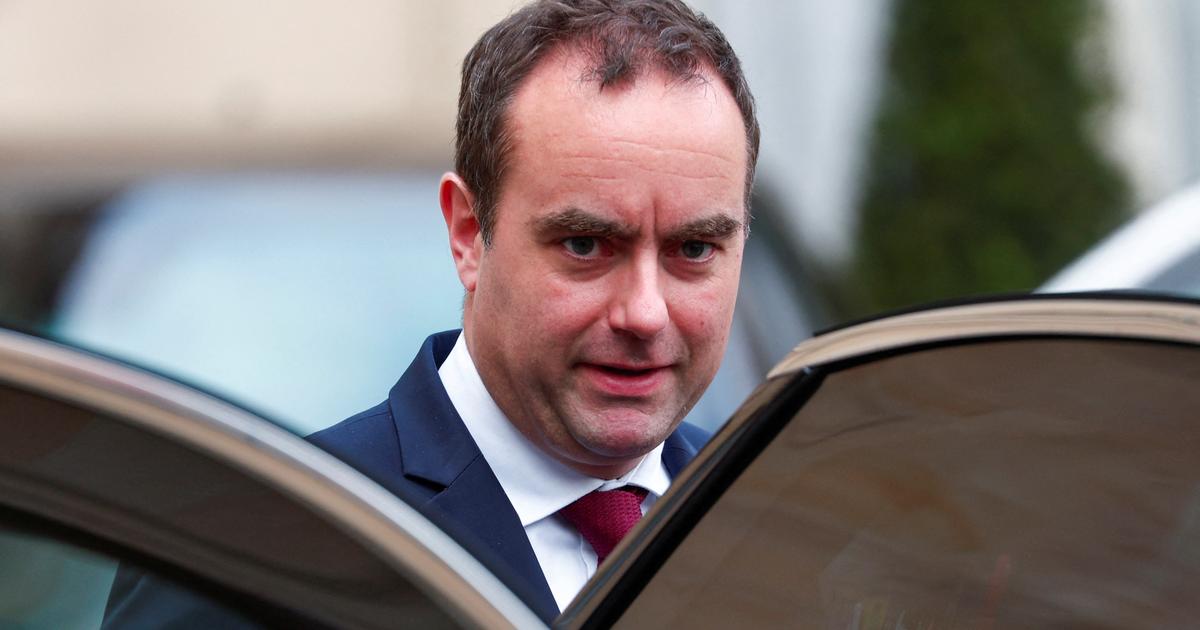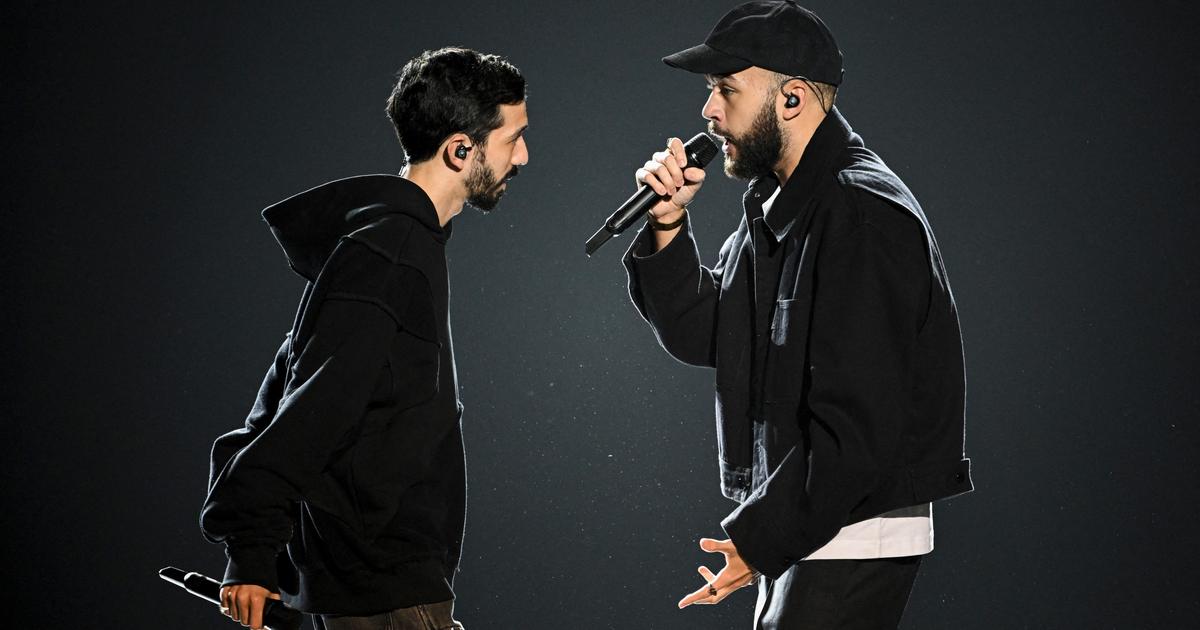Imagine a city where the municipality would know everything that is happening in real time in the public space.
Where the attitude of its citizens on the public highway would be analyzed.
Some mayors may dream of it.
That of Suresnes (Hauts-de-Seine) has decided to take an extra step in terms of public safety by providing the hundred or so cameras in the town with artificial intelligence software to detect so-called “suspicious” behavior.
READ ALSO>
Drones, cameras, private security… these other controversial articles of the global security law
Guillaume Boudy (LR) has just signed a partnership with the suresnoise company XXII, which markets this unique device in France in terms of intelligent video surveillance.
Its objective: to fight against incivility.
About ten municipalities in Ile-de-France, including Versailles (Yvelines) and Levallois-Perret (Hauts-de-Seine), are also interested in this technology which can cause concern.
“Before, officers looked at cameras at random, and sometimes missed important facts.
Thanks to this software, they will be immediately alerted in the event of suspicious behavior.
They are the ones who will decide if they intervene by seeing the images, ”defends the mayor of Suresnes.
Jump and you are filmed!
But what is “suspicious behavior”?
In reality, these tools identify “breakthrough movements”.
For example, a “smart” camera can learn to notice a person running or jumping in the street while others are walking.
The intelligent video surveillance of Suresnes is thus supposed to detect groups or even scooters driving on a cycle path.
“Incivilities happen at times when there is no one in the street: rodeos, dealers who disappear as soon as the police arrive, motorists in the direction of the prohibited or individuals who jump the barriers of a property, enumerates Guillaume Boudy.
These are abnormal behaviors. ”
The elected Republican also has in his sights the "scourge" of wild and bulky deposits on the road.
“You never manage to catch the perpetrators in the act and you have to spend huge sums on a truck.
Since they always drop off in one place, either we post someone there all day or we use a system like this.
The camera will alert the surveillance center if it spots large objects. ”
No facial recognition, no biometrics
The system should also help the municipality to "better deploy" its agents in the territory.
"Installing a camera where there are usually law enforcement agencies will allow the police to be sent elsewhere, such as in front of schools," says the mayor.
Who wants to clarify: "I am neither a geek, nor a fanatic of surveillance.
We are not trying to hunt Suresnois!
The city will define the area to watch, from when a grouping becomes suspicious or what the camera should spot.
“Be careful, in this system, there is no facial recognition, assures Guillaume Boudy.
It was my condition. ”
READ ALSO>
Health, transport, army ... artificial intelligence is now everywhere
In France, facial recognition technology is not authorized in real time on public roads anyway.
"Even without that, the data is not completely anonymous, unless it is blurred", points out however Thomas Dautieu, director of compliance of the Cnil (National Commission for Information Technology and Freedoms), to whom the city must submit a file. day to day technical and legal analysis.
"We will have two months to say whether it complies with the regulations," continues Thomas Dautieu.
The system must meet a need, that people are not automatically recognized, that the inhabitants are informed, etc. ”
"Ten times more hunted down by cellphones"
Company founder William Eldin also says the faces will not be noticeable.
“My software did not integrate facial recognition, nor biometrics.
An agent cannot view 100 cameras at the same time.
The machine just helps him to do what he cannot ”, he presents, before brushing aside any fears of citizens.
“This fear results from ignorance.
Those who fear this technology are ten times more tracked by their cellphones than by this system! "
Suresnes CCTV cameras will soon be equipped with artificial intelligence.
LP / MB-L.
At Suresnes, William Eldin wants to go “further” by “experimenting” the scope of his system beyond security issues, such as the environment.
The software can also indicate the filling rate of garbage cans, he says.
To test and develop this artificial intelligence, William Eldin makes the application available to the city free of charge for two years.
“It's an exchange of good practices,” underlines the thirty-something.
I will improve my algorithms thanks to this experience. ”
Newsletter The essential of 92
A tour of the Hauts-de-Seine and the IDF news
Subscribe to the newsletterAll newsletters
Because the machine is not perfect.
"She will sometimes make mistakes but there will be no impact since it is the agent who will decide whether to move," insists the founder.
Moreover, the latter is not very comfortable with the notion of "suspicious behavior".
Impossible, according to him, that his software finds a theft.
“But the mayor will have the pulse of the city in front of him.
And if a granny falls, the police will be able to intervene in real time! ”
The CNIL denounces a "wobbly" legal framework
The National Commission for Informatics and Liberties (Cnil) does not share the enthusiasm of the entrepreneur.
"The legal regime for video surveillance is a bit wobbly," says Thomas Dautieu.
We are asking for the adoption of a law to review a regime that dates from the 1990s and is no longer adapted to today's technological developments. ”
The body warns of the urgency of a national reflection on this subject.
“We do not want to see in five years that all cities have installed it in an anarchic way while the legal framework is not stabilized, argues Thomas Dautieu.
The idea is to have a global debate: legal but also political and societal on the challenges of these systems.
"And to conclude:" We must not arrive at an Orwellian society where we would be watched as soon as we set foot in the street, a store or the subway.
This software has consequences on the climate of our country. ”
"We must not move towards a police state"
Laurence Devillers.
/ DR
Laurence Devillers, member of the National Digital Ethics Pilot Committee, welcomes the experimentation carried out by the mayor of Suresnes.
But she warns of the dangers of artificial intelligence.
What do you think of the Suresnes project?
LAURENCE DEVILLERS.
I am in favor of its experimentation.
It is necessary to learn more about artificial intelligence, so I hope that the CNIL
(Editor's note: National Commission for Informatics and Freedoms)
will validate it.
However, the decisions made by the software should be monitored and its users trained.
What are the risks of such a device?
Parameters for these training systems are determined from data.
So artificial intelligence will more easily detect certain types of people.
How can we certify that it will not be discriminatory?
It is necessary to mount exhaustive tests in many situations.
Otherwise it can lead law enforcement to suspect the wrong people.
What happens in the event of carnival?
Will any gathering be considered suspicious by nature?
And the more technology we put around us, the more we increase the possibilities of hacking.
New software is susceptible to attacks.
What do you recommend to regulate their use?
It is time for the European Union to wake up and for an external certification body to demonstrate that there are no risks in using them.
It is not ethical to be the verifier of your own artificial intelligence systems yourself.
Why does the Cnil not act?
It ensures compliance with the laws.
That on data protection implies that the images captured must be anonymized and not stored.
But Suresnes' artificial intelligence goes beyond this framework because it will have an impact on public authorities.
We understand the security interest but we must not move towards a police state.
Smart CCTV is widely used in China.
How is it going ?
Everything that the Chinese do in the street, not crossing in the nails, not respecting the Highway Code, assaulting people ... is recorded by machines in some cities.
There are even whistleblowing systems to inform that a person is behaving badly.
Everything is connected as if a "moral file" constantly follows an individual.
As a result, citizens do not have the same rights.
It's frightening…
There is an intermediate choice to be made.
It should be noted that today, artificial intelligence is already everywhere.
On our phones, social networks, cars ...








